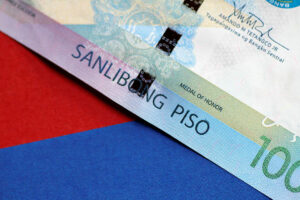THE PHILIPPINES will need to improve law enforcement against money laundering and terrorism financing if it wants to exit the Financial Action Task Force’s (FATF) “gray list” by January 2024, the central bank governor said.
“We hope we are able to satisfy them with just better enforcement,” Bangko Sentral ng Pilipinas (BSP) Governor Felipe M. Medalla told reporters on the sidelines of an economic briefing hosted by the Philippine Chamber of Commerce and Industry on Monday.
“Hopefully (the Philippines) will be out (of the list by January 2024). But of course, there’s a possibility that it will take longer to get out. Some countries took four years to get out and they had to do a lot,” he said.
The Paris-based FATF has kept the Philippines on its gray list of jurisdictions subjected to increased monitoring for “dirty money” risks since June 2021.
To be removed from the list, the Philippines has committed to comply with 18 action plan items. Progress reports are submitted to the FATF in three reporting cycles in a year — January, May and September.
Mr. Medalla said the government might have to hire more people to conduct investigations and file cases related to dirty money, like what Pakistan did.
“I was told Pakistan actually ended up hiring 3,000 more people just to follow up all the investigations and filing of cases (related to) terrorist financing,” he said.
In October, Pakistan was removed from the dirty money watchdog’s enhanced monitoring list after meeting 34 action items in two concurrent action plans over four years.
The Anti-Money Laundering Council (AMLC), on the other hand, said implementing the International Co-operation Review Group’s (ICRG) action plan to address the country’s strategic deficiencies is a whole-of-government concern.
“All anti-money laundering and counter-terrorism financing players, such as supervisors, regulators, law enforcement, prosecutors, other government agencies, and covered persons, are required to demonstrate progress in resolving all action plan items, wherever applicable,” the AMLC said in an e-mail.
The National Anti-Money Laundering and Countering the Financing of Terrorism Strategy has also been updated to incorporate the ICRG action plan. The strategy will be implemented through subcommittees, composed of various government and law enforcement agencies.”
“With the cooperation and commitment of all agencies concerned, the AMLC is optimistic that the country can promptly resolve its remaining strategic deficiencies to finally exit the gray list,” it added.
Based on the FATF’s latest assessment, the Philippines needs to show it is implementing effective risk-based supervision of designated nonfinancial businesses and professions. These include jewelry dealers, real estate brokers and developers and service providers for financial businesses.
The dirty money watchdog also said the country must improve monitoring controls to mitigate financial crimes associated with casino junkets.
The FATF said it would continue to track the country’s progress in ensuring beneficial ownership information is streamlined and up to date for better access of law enforcement agencies. — Keisha B. Ta-asan
